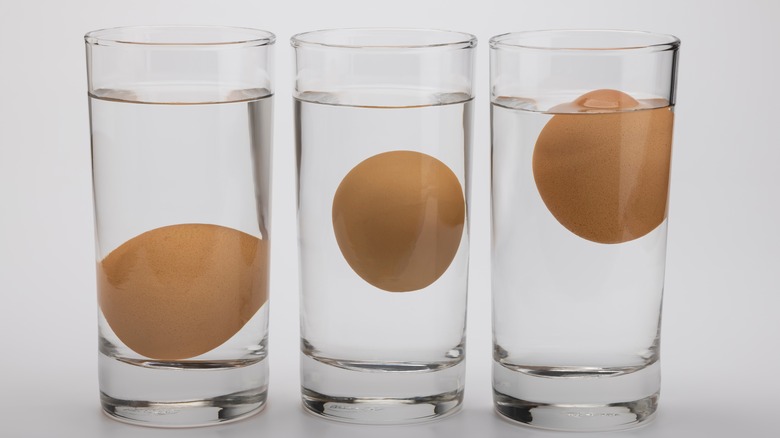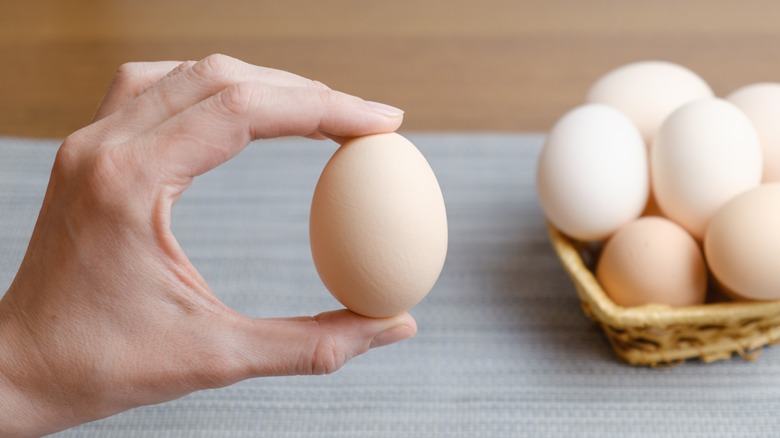The Science Behind Why Rotten Eggs Float
Every baker or chef has been there: you've got a recipe you want to make, and you're halfway through cooking it before you pull out your carton of eggs and realize they're past the sell-by date. For the conscientious among us, that might be motivation enough to head out to the store and grab a new pack. But most people would probably find themselves thinking, "It's probably fine, right?" And it probably is. But on the off-chance your eggs are rotten, you run the risk of ruining your whole recipe — and your whole night, when you spend it bent over the toilet bowl. What to do?
Luckily, someone came up with the float test. According to this measure, you should put your egg in a container of water to test their freshness. An egg that lies flat on its side on the bottom of the container is fresh, while an egg that floats on the top of the water or sits vertically in the container is old and probably shouldn't be used (via Healthline).
But why do the eggs float? And is this really a good way to tell if your eggs are rotten?
Eggs contain air
Though you might think eggs are completely full, they actually contain a tiny bit of air. As the egg ages, the amount of air inside the egg increases. Why?
Part of the change is due to decomposition, according to ThoughtCo. When the contents of the egg decompose, bacterial reactions occur that, among other things, can release gas. Think about that rotting food in your trash can putting off a real stench: That stench may be from some of the gas it's releasing. Chemical reactions play a role, too, ThoughtCo. notes. As eggs age, the sulfur and hydrogen inside the egg react. That chemical interaction emits rancid gas as a byproduct.
Keep in mind it's not the existence of the gas itself which makes the egg float (via What's Cooking America). Rather, it's that some of this gas escapes the eggshell, since eggs aren't airtight, according to ThoughtCo. Over time, this leads to the egg losing mass and becoming less dense, until, eventually, it becomes less dense than water. Once it reaches this stage, the egg will be able to float in the water, meaning older eggs will float and very fresh eggs won't. That makes the float test a good measure of whether you want to risk eating an egg or whether it's old and should be tossed.
When the float test doesn't work
It's important to note that the float test shouldn't be taken as gospel. There are plenty of instances when it won't work. For instance, the float test only works with fresh water. Salt water is denser than fresh water, meaning that even a fresh egg will float in salt water (via Science on the Shelves).
Even when you use the right type of water, rotten eggs can sink and fresh eggs can float. As Healthline points out, the float test determines the age of the egg but can't necessarily determine if it's gone rotten for other reasons. However, since there's not a way to tell 100% that an egg isn't rotten, the age of an egg can provide a good guide as to whether or not you should risk using it. If you want to be extra sure, check if the egg sinks in the water first. Then crack it into a separate bowl, which you can see if the egg has changed in color or smell as compared to what you would expect, Egg Safety Center suggests.


